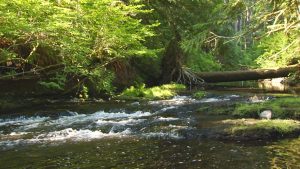Protecting and enhancing the values of sustainable working forests.
WASHINGTON FOREST PROTECTION ASSOCIATION
Sustainable Forestry Practices
A CENTURY OF LEARNING
With over a century of cumulative knowledge gained through hands-on experience and rigorous scientific investigations into the impacts of forestry on our environment, we understand that forestry is a long-term endeavor that demands continuous learning.
Today, our forest companies employ a diverse team of scientists, including hydrologists, wildlife biologists, geomorphologists, and dendrologists, each contributing their expertise to various facets of forest management. These dedicated professionals delve into subjects such as silviculture, wildlife, soils, geology, diseases, tree physiology, and all aspects of forest management and harvesting.
Silviculture, the science of nurturing tree growth, has been an integral part of our forest management approach. However, it wasn’t until the late 1980s, with the inception of the Timber, Fish, and Wildlife Agreement, that scientific research took center stage in shaping public policy discussions. Stewart Bledsoe, a prominent policy leader of that era, emphasized the significance of embracing scientific truth, stating, “we will go where the truth takes us.” Since then, collaborative scientific endeavors have formed the cornerstone of forest practices policy discussions.
Today, Cooperative Monitoring, Evaluation, and Research (CMER) serves as the bedrock for developing the scientific knowledge necessary to inform policymakers and facilitate the process of adaptive management. We remain committed to using the best available science to guide our actions, ensuring that sustainable forestry practices continue to evolve and benefit both our industry and the natural environment.


